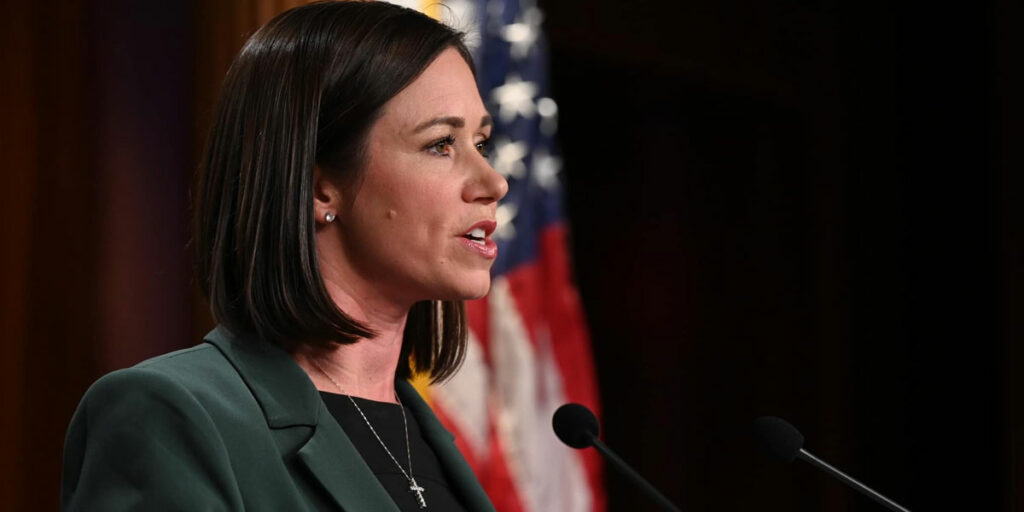Ten years ago, our oldest daughter, Katie, was preparing for her high school graduation, applying to colleges and shopping for her prom dress. The thought of disordered eating behaviors and eating disorders were nowhere on the radar.
Like most teenage girls, she was involved in school activities and clubs. She started playing
soccer and was involved in “pee wee” cheerleading in the third grade. She shared her love of soccer with her twin sisters. Many hours were spent with all three of our daughters on soccer fields; they never missed each other’s games or tournaments. Katie continued elite competition cheer through her sophomore year of college after winning back-to-back National Titles.
During the fall semester of her senior year at the University of West Georgia, Katie began a paid internship that served as a springboard to the beginning of her career in human resources at Southwire. She was growing into an independent, self-supporting woman. She referred to it as “adulting.”
On the surface, it appeared as though Katie was a typical young woman navigating life from high school through college to the start of her career. However, Katie had an illness.
Like many illnesses, no one knows exactly when it began. Initially, she didn’t have any visible symptoms. She didn’t miss any school, she wasn’t restricted to participate in any physical activities, the illness did not require her to take any medication or to have frequent visits with her doctor. As a matter of fact, no one had any idea she was sick. She wasn’t the first, nor would she be the last person to live with this illness.
Just as people don’t choose to have cancer or diabetes, Katie didn’t choose to have an eating disorder. Eating disorders are NOT a choice. They are serious biologically-influenced mental and addictive illnesses that can be life threatening. They come in all shapes and sizes; they do not discriminate between age, gender, race, class, sexual orientation or ethnic groups.
You cannot tell if someone is struggling on the basis of their appearance. People with eating
disorders can be near death from malnourishment or binging or purging without any damage or alarming blood/medical tests.
Having a family member with an eating disorder is a scary, isolating, unfamiliar and devastating experience for the entire family and the fact that she was 18 years old when her disordered eating became apparent made the process of getting her help that much more challenging.
Couple that with the fact that many primary care physicians have a difficult time helping patients with eating disorders because they are not trained in eating disorders.
On Jan. 8, 2019, as I was leaving the house to go teach a Pilates class, I received a phone
call from northwest Atlanta. I declined the call thinking it was a telemarketer. Within seconds my phone rang again. It was a coworker of Katie’s and I knew at that moment that something was wrong. Katie’s boss explained that an ambulance was en route to take her to the hospital because she collapsed and lost consciousness at work.
Arriving at the hospital, we were directed to a critical care unit nurse who escorted us back to see Katie. Nothing could have prepared me for what I was about to witness. Our
precious 24-year-old daughter lay in a hospital bed surrounded by a countless number of drip bags and medical monitoring equipment. In that instant, all I could envision was her as a healthy, happy, innocent little girl. It just didn’t seem real.
Reality soon set in, however, when we met with the cardiologist who shared with us the findings from tests they had run. In medical terms, Katie collapsed due to cardiac arrest, malnutrition and electrolyte imbalance. In layman’s terms, she collapsed due to an eating disorder. We explained that as a family, we were aware of Katie’s disordered eating behaviors and getting a diagnosis for someone over the age of 18 was more of a challenge then we ever imagined.
I asked the cardiologist, “How many young girls Katie’s age (and in her condition) do you treat each year?”
She placed her hand on mine and said, “Hundreds. However, it is not just girls in their early to mid-20. It is young men, 16-22 years old, and girls as young as 8 and 9 years old.”
We all have to face food every day. It is on TV and billboards, in magazines and other forms of media. We can choose to abstain from alcohol and drugs because we do not need them to survive. The same is not true with food, which makes the recovery from ED one of the most difficult to navigate.
Katie was an organ donor. She gave the gift of life so others could live theirs to the fullest. This decision to become a donor was one our daughter made on her own while renewing her driver’s license just seven months prior to her donation. It was a courageous, selfless and loving act, which describes the kind of young woman she was.
As a family, we have all struggled with the loss of Katie. She was a part of a very large
extended family of a grandmother, aunts, uncles and cousins. She left behind a legacy of a
“love for life.” Her sisters often tell people that she ”took advantage of all that life offered.” She had a smile that was as big as her heart and her laughter was absolutely contagious!
Now it is our turn to be courageous, selfless and loving. We choose to be the voice of Katie and all those living with an eating disorder. We have to work to help other families and individuals avoid the most challenging, heartbreaking and exhausting journey of watching a loved one suffer in shame, anxiety and isolation while trying to find someone who can help them. We choose to be the voice of primary care providers who are able to screen for breast cancer, colon cancer, diabetes and a multitude of other illnesses and diseases, but are void of any means to screen for eating disorders.
As a family, we desire to be a conduit between parents/caregivers of those struggling with an eating disorder and the resources necessary to help the person and their parent/caregiver to have the best chance at receiving appropriate care for recovery. We also want to be involved in conversations, groups and committees working to develop some type of screening process for eating disorders beginning at the Pediatric level as well as driving change to the diagnosis protocol.
The following resources are available if you or someone you know is living with an eating
disorder. Eating disorder recovery is possible and seeking professional help for early detection is strongly encouraged and visiting the organizations listed below would be a good and highly- recommended start.
The National Eating Disorders Association is the largest nonprofit organization
dedicated to supporting individuals and families affected by eating disorders. Their toll free
phone number is 1-800-931-2237 and they can also be contacted at
nationaleatingdisorders.org.
F.E.A.S.T. (Families Empowered And Supporting Treatment for Eating Disorders) is a
global community offering support, education and empowerment to families affected with eating disorders. Their slogan reads, “We are here because we have been there.” They can be contacted online at feast-ed.org.
I would like to thank Patrick Lawler for his unconditional willingness to support National Eating Disorder Awareness Week 2023 (NEDA 2023) by illuminating the (Guntersville) City Harbor with the signature blue and green colors of NEDA. NEDA occurs every year during the third week of February, which will always overlap with Katie’s birthday Feb. 27.













